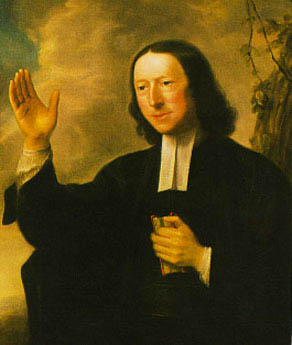
Depending on where you’re from, the reactions of family and friends to your new place of higher learning may be more confused than congratulatory. If you haven’t already, you’ll have to get used to the fact that, despite Wesleyan’s pedigree as one of the country’s top-tier liberal arts colleges, most people will think that you’re hiccupping or sneezing after saying “Wellesley” when you tell them you’re coming here. With that in mind, it might be a good idea to know a thing or two about after whom our school was named and why.
John Wesley is best known as the founder of Methodism, a Protestant denomination characterized at its inception by charity and outreach to lower-class areas. A theologian educated at Oxford, Wesley outlined the origins of Methodist doctrine at the Holy Club, set up by John and his brother Charles when they were at school. He continued to refine his belief system, including a theological backbone of “Wesleyanism,” throughout his adult life before embarking on a mission to spread it across England. Coming into conflict with many core institutional tenets of the Church of England, Wesley certainly didn’t spread the Methodist faith without controversy, but his willingness to put his beliefs in the hands of a less bureaucratic system of ministry allowed him to reach a lot of Britons that he wouldn’t have been able to reach otherwise.
Wesley was also able to reach many Americans. Methodist leaders on this side of the pond bought up Wesleyan Univerity’s original college campus after the location had failed as Captain Alden Partridge’s American Literary, Scientific, & Military Academy. Partridge had started the academy in Norwich, Vermont, before moving it down to Connecticut in 1825. Apparently things didn’t go so well for Partridge here, so the college moved back up to Norwich in 1829, where it was renamed Norwich University.
The residents of Middletown took a lot of pride in the campus’s shift from a military college to a liberal arts university, and despite our current narratives of Wesleyan’s conservative past (we used to be an all-male school, for crying out loud!), the school has always prided itself on its relatively progressive nature. Social justice and educational innovations, the ideal that Wesley’s name signifies, have always been the goal at Wesleyan, .
If anyone happens to recognize the name of your new home, one of the first things they might say is, “there are a lot of those, right?” After Wesleyan was founded in 1831, Wesley’s name materialized in a slew of other colleges and universities that popped up all around the country: Ohio Wesleyan University, Indiana Wesleyan University, Illinois Wesleyan University, Virginia Wesleyan College, Wesleyan College (it’s in Georgia, for those marking their maps), and North Carolina Wesleyan College. There is also a Wesleyan School in Atlanta for grades K-12. Like our own Wesleyan University, many of these schools trace their mission of progressive social justice back to the influence of their namesake. We did it before it was cool, though.
So the next time your relatives look at you with a concerned expression when you tell them where you’re going to college, you can lecture them on the moniker’s liberal undertones.
The online version of this article was updated on August 31 to correct inaccurately reported dates of the relocation of Captain Alden Partridge’s American Literary, Scientific, and Military Academy. The article originally reported the dates as 1925 and 1929, respectively.
The online version of this article was corrected for accuracy on September 2. The article originally used the word “tenant” instead of “tenet.”


Leave a Reply